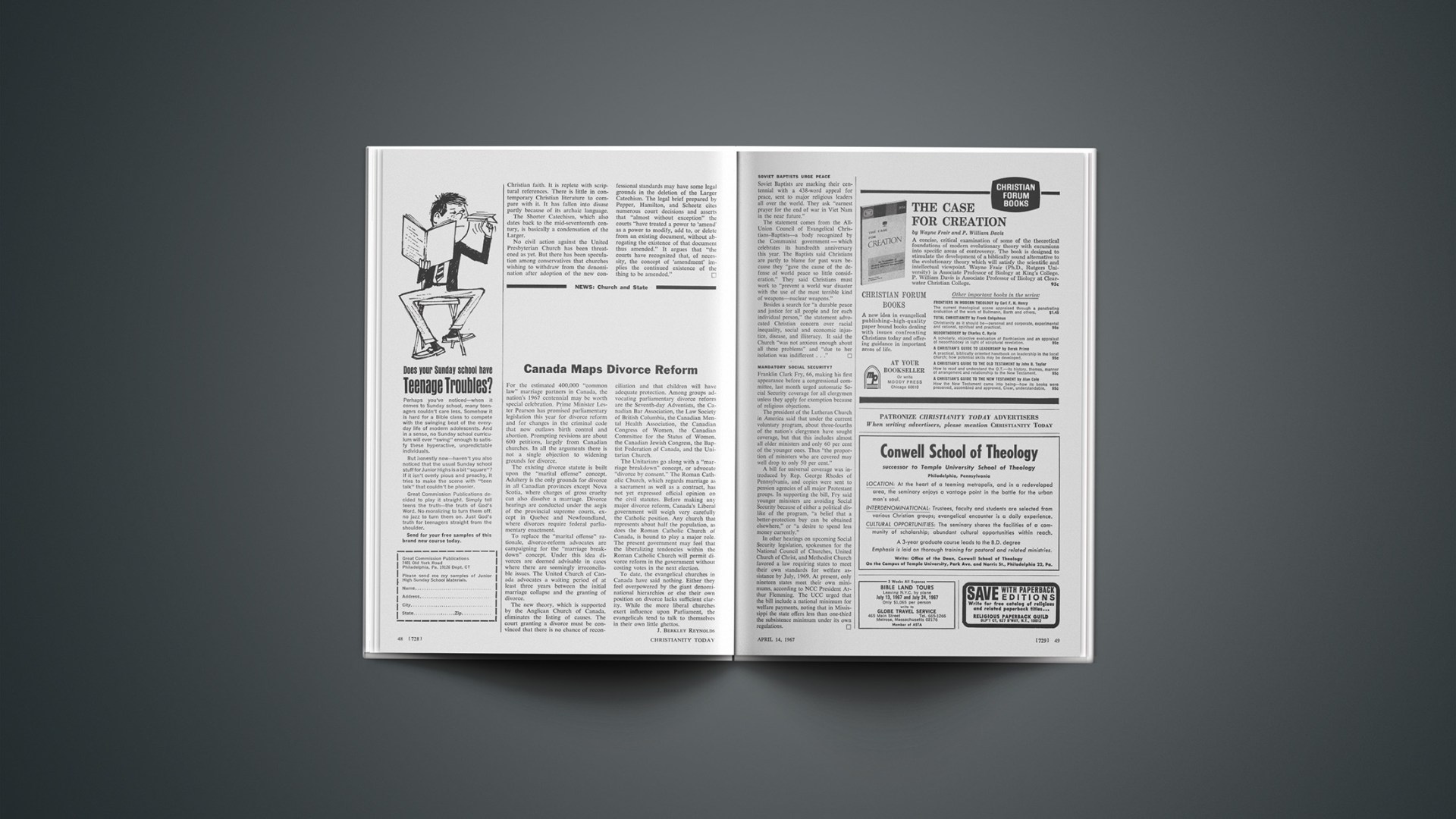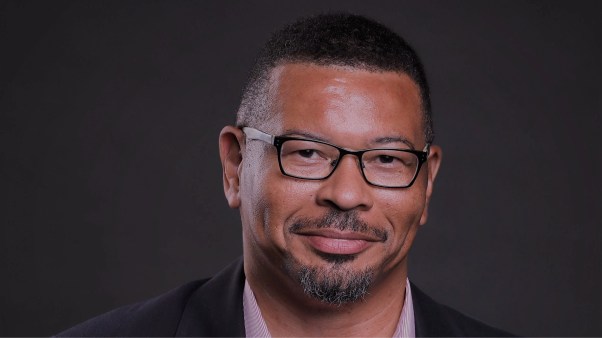For the estimated 400,000 “common law” marriage partners in Canada, the nation’s 1967 centennial may be worth special celebration. Prime Minister Lester Pearson has promised parliamentary legislation this year for divorce reform and for changes in the criminal code that now outlaws birth control and abortion. Prompting revisions are about 600 petitions, largely from Canadian churches. In all the arguments there is not a single objection to widening grounds for divorce.
The existing divorce statute is built upon the “marital offense” concept. Adultery is the only grounds for divorce in all Canadian provinces except Nova Scotia, where charges of gross cruelty can also dissolve a marriage. Divorce hearings are conducted under the aegis of the provincial supreme courts, except in Quebec and Newfoundland, where divorces require federal parliamentary enactment.
To replace the “marital offense” rationale, divorce-reform advocates are campaigning for the “marriage breakdown” concept. Under this idea divorces are deemed advisable in cases where there are seemingly irreconcilable issues. The United Church of Canada advocates a waiting period of at least three years between the initial marriage collapse and the granting of divorce.
The new theory, which is supported by the Anglican Church of Canada, eliminates the listing of causes. The court granting a divorce must be convinced that there is no chance of reconciliation and that children will have adequate protection. Among groups advocating parliamentary divorce reform are the Seventh-day Adventists, the Canadian Bar Association, the Law Society of British Columbia, the Canadian Mental Health Association, the Canadian Congress of Women, the Canadian Committee for the Status of Women, the Canadian Jewish Congress, the Baptist Federation of Canada, and the Unitarian Church.
The Unitarians go along with a “marriage breakdown” concept, or advocate “divorce by consent.” The Roman Catholic Church, which regards marriage as a sacrament as well as a contract, has not yet expressed official opinion on the civil statutes. Before making any major divorce reform, Canada’s Liberal government will weigh very carefully the Catholic position. Any church that represents about half the population, as does the Roman Catholic Church of Canada, is bound to play a major role. The present government may feel that the liberalizing tendencies within the Roman Catholic Church will permit divorce reform in the government without costing votes in the next election.
To date, the evangelical churches in Canada have said nothing. Either they feel overpowered by the giant denominational hierarchies or else their own position on divorce lacks sufficient clarity. While the more liberal churches exert influence upon Parliament, the evangelicals tend to talk to themselves in their own little ghettos.
Soviet Baptists Urge Peace
Soviet Baptists are marking their centennial with a 438-word appeal for peace, sent to major religious leaders all over the world. They ask “earnest prayer for the end of war in Viet Nam in the near future.”
The statement comes from the All-Union Council of Evangelical Christians-Baptists—a body recognized by the Communist government—which celebrates its hundredth anniversary this year. The Baptists said Christians are partly to blame for past wars because they “gave the cause of the defense of world peace so little consideration.” They said Christians must work to “prevent a world war disaster with the use of the most terrible kind of weapons—nuclear weapons.”
Besides a search for “a durable peace and justice for all people and for each individual person,” the statement advocated Christian concern over racial inequality, social and economic injustice, disease, and illiteracy. It said the Church “was not anxious enough about all these problems” and “due to her isolation was indifferent …”
Mandatory Social Security?
Franklin Clark Fry, 66, making his first appearance before a congressional committee, last month urged automatic Social Security coverage for all clergymen unless they apply for exemption because of religious objections.
The president of the Lutheran Church in America said that under the current voluntary program, about three-fourths of the nation’s clergymen have sought coverage, but that this includes almost all older ministers and only 60 per cent of the younger ones. Thus “the proportion of ministers who are covered may well drop to only 50 per cent.”
A bill for universal coverage was introduced by Rep. George Rhodes of Pennsylvania, and copies were sent to pension agencies of all major Protestant groups. In supporting the bill, Fry said younger ministers are avoiding Social Security because of either a political dislike of the program, “a belief that a better-protection buy can be obtained elsewhere,” or “a desire to spend less money currently.”
In other hearings on upcoming Social Security legislation, spokesmen for the National Council of Churches, United Church of Christ, and Methodist Church favored a law requiring states to meet their own standards for welfare assistance by July, 1969. At present, only nineteen states meet their own minimums, according to NCC President Arthur Flemming. The UCC urged that the bill include a national minimum for welfare payments, noting that in Mississippi the state offers less than one-third the subsistence minimum under its own regulations.










